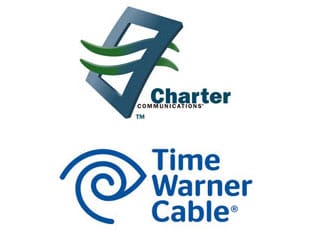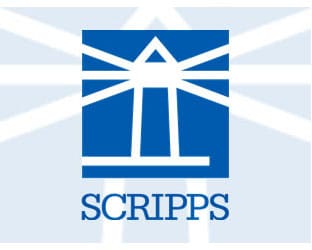 The FCC has now said why it okayed the Charter acquisition of Time Warner Cable and Bright House and we learn what conditions have been imposed. The California Public Utilities Commission must still sign-off on the merger and is set to vote Thursday.
The FCC has now said why it okayed the Charter acquisition of Time Warner Cable and Bright House and we learn what conditions have been imposed. The California Public Utilities Commission must still sign-off on the merger and is set to vote Thursday.
The $78 billion deal would move what would be called “New Charter” from the fourth-largest cable company in America to number two behind Cox.
Charter claims its current management employs a “best-in-class” business model that results in more subscribers choosing to stay with the company. According to Charter, it focuses on offering services with higher broadband speeds and simplified, uniform pricing that is often faster and cheaper than its cable peers. It does not impose data caps or usage-based pricing for broadband, nor does it charge extra for cable modem rentals or levy early termination fees if subscribers opt to switch providers. Because of its focus on its high-speed broadband service, Charter views current and emerging online video competitors as complementary and, therefore, it would not engage in actions that would undermine the viability of these competitors that drive broadband demand.
The parties described their deal as a “best-of-breed” merger to the FCC. They promise to deliver new ways for consumers to access video content — for example, by deploying an app integrating Charter’s cloud-based television guide with Time Warner Cable’s existing app that streams hundreds of live channels.
The FCC concluded the deal could potentially harm the public interest. The agency said: “New Charter’s increased broadband footprint and desire to protect its video profits will increase incentives to impose data caps and usage-based prices in order to make watching online video more expensive, and in particular more expensive than subscribing to a traditional pay-TV bundle. Second, New Charter’s larger number of broadband subscribers will increase its incentive and ability to raise prices on companies—including online video distributors—that interconnect with New Charter’s network to deliver Internet traffic that consumers want. Third, the transaction will likely increase New Charter’s incentive and ability to use its leverage over programmers to extract contractual terms that will frustrate the programmers’ abilities to license content for online distribution. In doing so, New Charter will foreclose online video distributors from content that allows them to be more vibrant competitors to cable operators.”
In the decision issued late Tuesday, the commission imposed four conditions: New Charter is prohibited from imposing data caps or charging usage-based pricing for residential broadband service for 7 years to continue past practices and ensure the company will protect subscribers from paying fees designed to make online video consumption more expensive, leading subscribers to stick with a traditional pay-TV bundle.
Second, to prevent New Charter from raising prices on companies that deliver Internet traffic—including online video traffic—requested by its broadband subscribers, the company must interconnect with qualifying companies for free. The modifications will ensure that companies may more easily qualify for free interconnection and that they may increase their traffic and expand their services at a greater rate before needing to pay to deliver content to New Charter’s subscribers.
Third, because New Charter will have an increased incentive to use its greater leverage over programmers to frustrate online video competition, the FCC and the DOJ both prohibited New Charter from entering or enforcing contractual terms that prevent or penalize programmers from distributing content online for 7 years.
And fourth, the agency says the conditions are meant to allow efficiencies and benefits from merging to occur while mitigating likely harms. The agency acknowledges not all harms may be eliminated and will adopt a monitoring system to ensure New Charter can’t “avoid the letter and the spirit of the conditions.”
The merged company is also being required to deploy high-speed broadband to 2 million more homes and include a low-income broadband program for eligible households.




